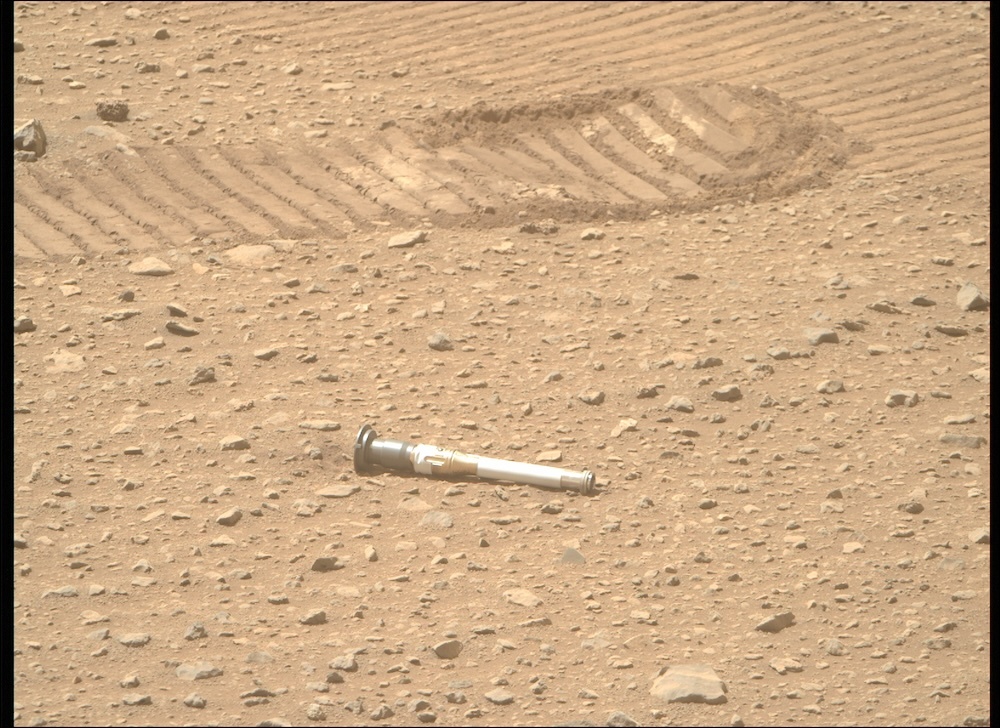
JUNE 21, 2024 BY MARK THOMPSON
Collected at: https://www.universetoday.com/167489/its-not-just-rocks-scientists-want-samples-marss-atmosphere/
Mars holds a very special place in our hearts. Chiefly because of all the other planets in the Solar System Mars is probably the place we are going to find some tantalising clues or maybe even evidence of prehistoric life. NASA Perseverance Rover has been trundling around the Jezero Crater looking for evidence that it was once hospitable to life. To that end it has not only been collecting rock samples but air samples too and scientists can’t wait to get their hands on them.
The Mars Perseverance Rover is part of NASA’s Mars 2020 mission. It launched on 30 July 2020 and landed in the Jezero Crater successfully on 18 February 2021. The site was picked because it’s a dried up river bed and if there is any evidence of ancient primitive life on Mars, it is a likely location. Perseverance is equipped with a host of instruments including a drone named Ingenuity to survey the planet.

One exciting element of the mission is the collection of rock samples as part of the Mars Sample Return Campaign. Twenty four core samples have been collected to date and deposited on the surface ready for collection by a future mission. It’s not just rock samples that have been collected though. Known as ‘headspace’ there is air in the space around the rock samples and it is this that has got scientists excited.
Not only do the rocks hold secrets about Mars but the atmosphere does too. It’s an atmosphere rich in Carbon Dioxide but is expected to have trace amounts of other gasses too. Information about the current climate can be gained from the trapped gasses but it’s also possible to learn about the evolution of the atmosphere through analysis of the rocks. There is one particularly important tube that has been filled entirely with gas from the atmosphere.

With the sample sat on the surface of Mars potentially for many years, the gas trapped will interact with the rock in the sample tube. It will only be when the tubes are opened up when they arrive back here on the Earth that the interaction will cease. It’s hoped to understand more about the levels of water vapour near the Martian surface.
It isn’t just the water vapour that is of interest but the levels of trace gas too are of interest. Through analysing the gas samples we can tell if there are gasses like neon, argon and xenon which are non reactive gasses. Because these gasses do not react then there presence in the tube samples may suggest that Mars stated with an atmosphere. We know that it had a much thicker atmosphere in the past but we don’t know whether it has always been there or whether it developed later.
There are many benefits that will come from analysing the samples even, the prevalence of dust that will help future human exploration. As Justin Simon from NASA’s Johnson Space Center in Houston said “The gas samples have a lot to offer Mars scientists, even those who don’t study Mars would be interested because it will shed light on how the planet forms and evolves.”
Source : Why Scientists Are Intrigued by Air in NASA’s Mars Sample Tubes

Leave a Reply